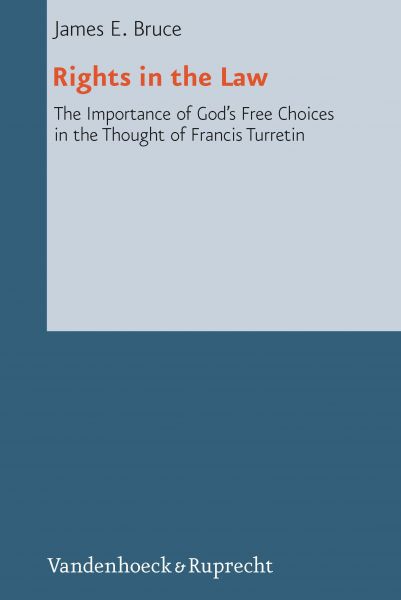Rights in the Law
The Importance of God's Free Choices in the Thought of Francis Turretin
James E. Bruce explores the relationship between morality and God's free choices in the thought of Francis Turretin (1623–1687). The first book-length treatment of Turretin's natural law theory, Rights in the Law provides an important theological backdrop to Early Modern moral and political philosophy. Turretin affirms Thomas Aquinas's approach to the natural law, calling it the common opinion of the Reformed orthodox, but he develops it, too, by introducing a threefold scheme of right (ius)—divine, natural, and positive—to explain how change within the law is possible. For example, God can change the specific day for Sabbath observance from Saturday to Sunday—from positive right—without changing the natural law precept that finite creatures ought to rest. Yet even with respect to the natural law God is still free. God can make a world in which there is no such thing as murder: he can choose not to make a world that contains such a thing as man. What God cannot do is make a murderable man. So God's free choices determine the natural law insofar as the natural law is constituted by the nature of the things that God has chosen to create.
James E. Bruce, Ph.D., is Assistant Professor of Philosophy at John Brown University in Siloam Springs, Arkansas, USA.
Versandkostenfreie Lieferung! (eBook-Download)
Als Sofort-Download verfügbar
- Artikel-Nr.: SW9783647550596110164
- Artikelnummer SW9783647550596110164
-
Autor
James E. Bruce
- Verlag Vandenhoeck & Ruprecht
- Seitenzahl 172
- Veröffentlichung 18.09.2013
- Barrierefreiheit
- ISBN 9783647550596

